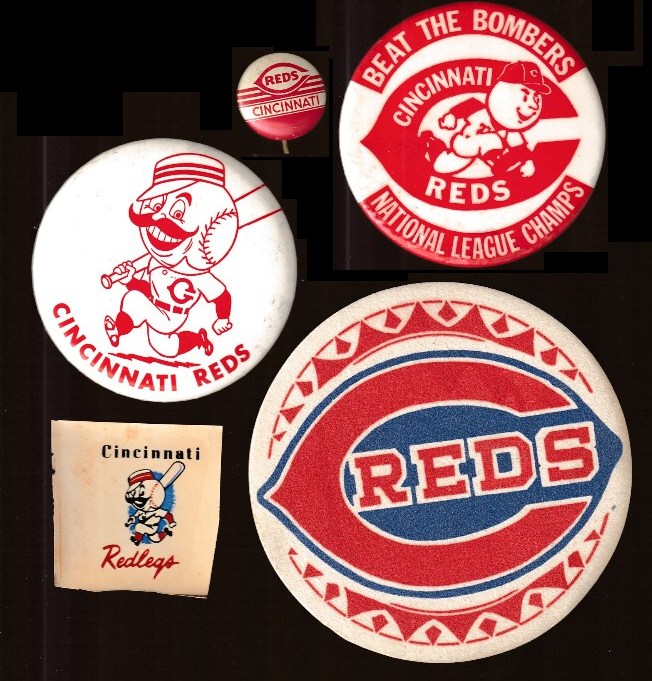Cincinnati Reds - Vintage 1950's/1960's 3-1/2 inch button/pin
Thousands of vintage Reds buttons/pin on eBay but NONE OF THESE !

Below are short bits & pieces on sportscard & baseball trading card collecting.
Please wander around the website for more info, prices, values & images
on vintage baseball, football, basketball, hockey, sport and non-sports cards.
Please wander around the website for more info, prices, values & images
on vintage baseball, football, basketball, hockey, sport and non-sports cards.
1972 Topps AUTOGRAPHED |



1971 Topps FootballThe 1971 Topps Football set contained (263) cards. TOP ROOKIES: Terry Bradshaw, Mean Joe Greene, Willie Lanier, Ken Houston, Marty Schottemheimer...Note: You may be on that page right now. |

How do I keep cards in top condition ?
A: There is a wide variety of storage supplies available to help you keep your cardsin the best condition possible. They range from hard thick acrylic screw-down holders to "penny" soft sleeves for individual cards to cardboard boxes that can hold from 100 cards upto "monster boxes" that hold more than 5,000 sportscards.
We have a large selection available on our web site with quantities from 1 to 1,000.
